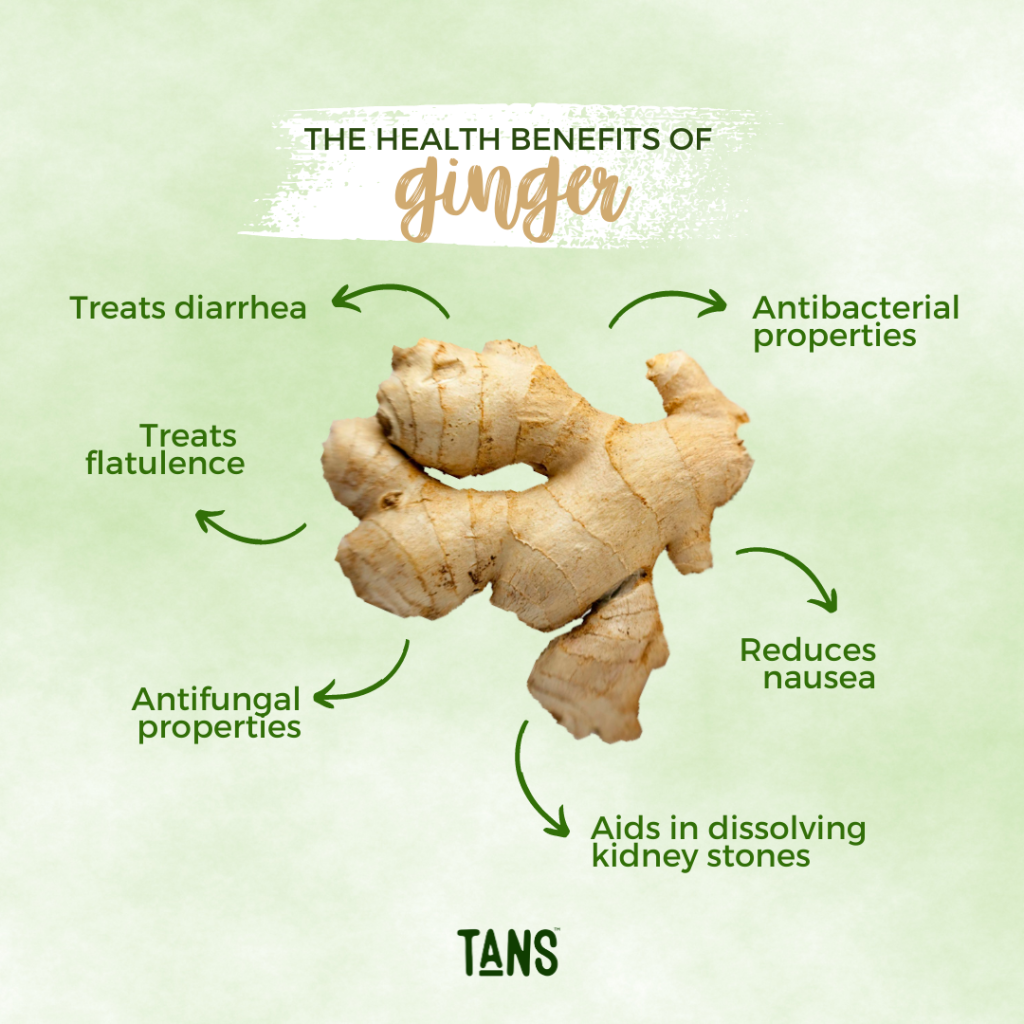If you’re like most people, you probably think of ginger as a spice used in cooking. And while it’s true that ginger does add a flavorful zing to food, it also offers a host of health benefits when consumed on a daily basis. In fact, ginger has been used for centuries in traditional Chinese and Indian medicine. Treating everything from nausea and indigestion to arthritis and pain. Let’s take a closer look at some of the most impressive health benefits associated with this humble root.
Ginger Aids in Digestion 8
One of the most well-known benefits of ginger is its ability to aid in digestion. If you suffer from indigestion, heartburn, or other gastrointestinal issues, consuming ginger can help to soothe your stomach and improve your digestion. Ginger does this by stimulating the production of saliva and other digestive juices. Which helps to break down food and makes it easier for your body to absorb nutrients.
Ginger Contains Powerful Anti-inflammatory Properties
One of the most well-known health benefits of ginger is its potent anti-inflammatory effects. Inflammation is your body’s natural response to injury or infection. Although, when it becomes chronic, it can lead to a host of health problems like arthritis, heart disease, and diabetes. Studies have shown that the anti-inflammatory compounds in ginger can help to reduce various markers of inflammation in the body (1). Making it an effective natural treatment for conditions like osteoarthritis.
Giner May reduce most cholesterol markers 1 6
Through various studies findings were gathered that consumption of ginger in small amounts daily had a significant impact on cholesterol markers. Increase of HDL (good) and decrease in LDL (bad) cholesterol was observed significantly. Due to the strong taste of ginger, a lot of individuals dropped out of the study. You could try it for yourself to see if it helps you. Have over 1 gram of ginger daily and can go above 3 grams but with caution.


Ginger May Boost Brain Function and Protect Against Alzheimer’s Disease 9
Recent studies have shown that ginger may help improve brain function and protect against cognitive decline (4). One animal study found that ginger extract was able to reverse age-related changes in brain function (5). Furthermore, test-tube studies have demonstrated that the compounds in ginger can inhibit the formation of beta-amyloid plaques—a hallmark of Alzheimer’s disease (6). While more research is needed to confirm these effects in humans, these findings suggest that ginger may be beneficial for brain health.
Ginger Reduces Inflammation 1
Another benefit of consuming ginger on a daily basis is that it can help to reduce inflammation throughout your body. This is due largely in part to the presence of compounds like gingerol and zingerone. These have potent anti-inflammatory properties. If you suffer from conditions like arthritis or joint pain, consuming ginger can help to reduce inflammation and improve your overall quality of life. 5
Ginger Boosts Immune System Functioning 7
In addition to reducing inflammation, ginger can also help to boost your immune system functioning. This is thanks to the presence of compounds like beta-glucans and pungent phenols. These work together to fight infection and improve overall immunity. So next time you’re feeling under the weather, reach for some ginger instead!
Ginger May Help Relieve Nausea and Vomiting
If you suffer from motion sickness or pregnant, you know how dreadful nausea and vomiting can be. Thankfully, ginger has been shown to be an effective natural remedy for both morning sickness and seasickness (2). Ginger may help by blocking certain receptors in the brain that are responsible for triggering nausea and vomiting (3). So next time you’re feeling queasy, try sipping on some ginger tea or nibbling on a piece of candied ginger.
Summary
From reducing inflammation to boosting brain function, this humble root packs quite a punch! So if you’re looking for a simple way to improve your health, add some ginger to your diet. Whether you add it to your morning smoothie or use it as a seasoning for dinner, incorporating ginger into your diet is a great way to improve your overall health. Ginger when combined with turmeric has a whole different set of benefits, if you want to know more click here. TANS Rawblends’ Organ Cleanse and Stress Buster are packed with ginger in good amounts to get you in optimal health and to aid you to reach your health goal.
References:
1-11 Health Benefits of Ginger: Effect on Nausea, the Brain & More (healthline.com)
2- Biological properties of 6-gingerol: a brief review – PubMed (nih.gov)
4-Ginger Water Reduces Body Weight Gain and Improves Energy Expenditure in Rats – PMC (nih.gov)
7-Ginger in gastrointestinal disorders: A systematic review of clinical trials – PMC (nih.gov)
8- Effect of ginger on gastric motility and symptoms of functional dyspepsia – PMC (nih.gov)
10 Turmeric and Ginger: Combined Benefits and Uses (healthline.com)
